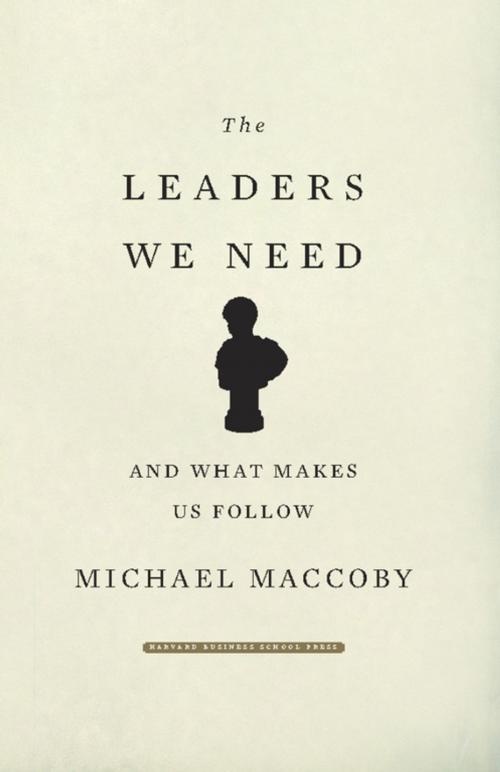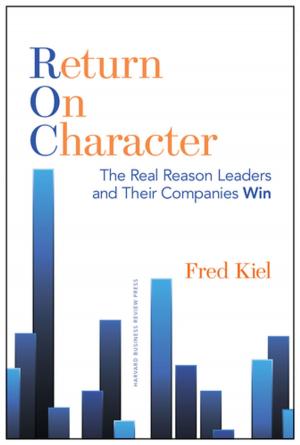| Author: | Michael MacCoby | ISBN: | 9781422163603 |
| Publisher: | Harvard Business Review Press | Publication: | October 4, 2007 |
| Imprint: | Harvard Business Review Press | Language: | English |
| Author: | Michael MacCoby |
| ISBN: | 9781422163603 |
| Publisher: | Harvard Business Review Press |
| Publication: | October 4, 2007 |
| Imprint: | Harvard Business Review Press |
| Language: | English |
A leader is someone people follow. But why do people follow? Books abound on leaders, but much less is known about followers. In The Leaders We Need, Maccoby steps into this yawning gap in the literature.
This insightful book shows that followers have their own powerful motivations to follow. Many relate to their leader as to some important person from the past-a parent, a sibling, a close friend. With major shifts in family structure and other social changes (especially transformations in technology and work life), these transferences” have grown complex-making leaders’ work more challenging.
The key for modern-day leaders? Being sensitive to how a group’s collective psychology and social context shape its leadership needs. For example, factory workers in a large city during a period of relative calm would need very different leaders than people working in a star management consultancy during a time of stiffening competition. The author outlines the profound shift from a more bureaucratic society and leadership model to an interactive, collaborative one-and provides crucial advice on how to become a leader we need.”
Offering provocative psychological insight and thoughtful analysis of social and cultural changes, this book examines leadership through an entirely new lens.
A leader is someone people follow. But why do people follow? Books abound on leaders, but much less is known about followers. In The Leaders We Need, Maccoby steps into this yawning gap in the literature.
This insightful book shows that followers have their own powerful motivations to follow. Many relate to their leader as to some important person from the past-a parent, a sibling, a close friend. With major shifts in family structure and other social changes (especially transformations in technology and work life), these transferences” have grown complex-making leaders’ work more challenging.
The key for modern-day leaders? Being sensitive to how a group’s collective psychology and social context shape its leadership needs. For example, factory workers in a large city during a period of relative calm would need very different leaders than people working in a star management consultancy during a time of stiffening competition. The author outlines the profound shift from a more bureaucratic society and leadership model to an interactive, collaborative one-and provides crucial advice on how to become a leader we need.”
Offering provocative psychological insight and thoughtful analysis of social and cultural changes, this book examines leadership through an entirely new lens.















